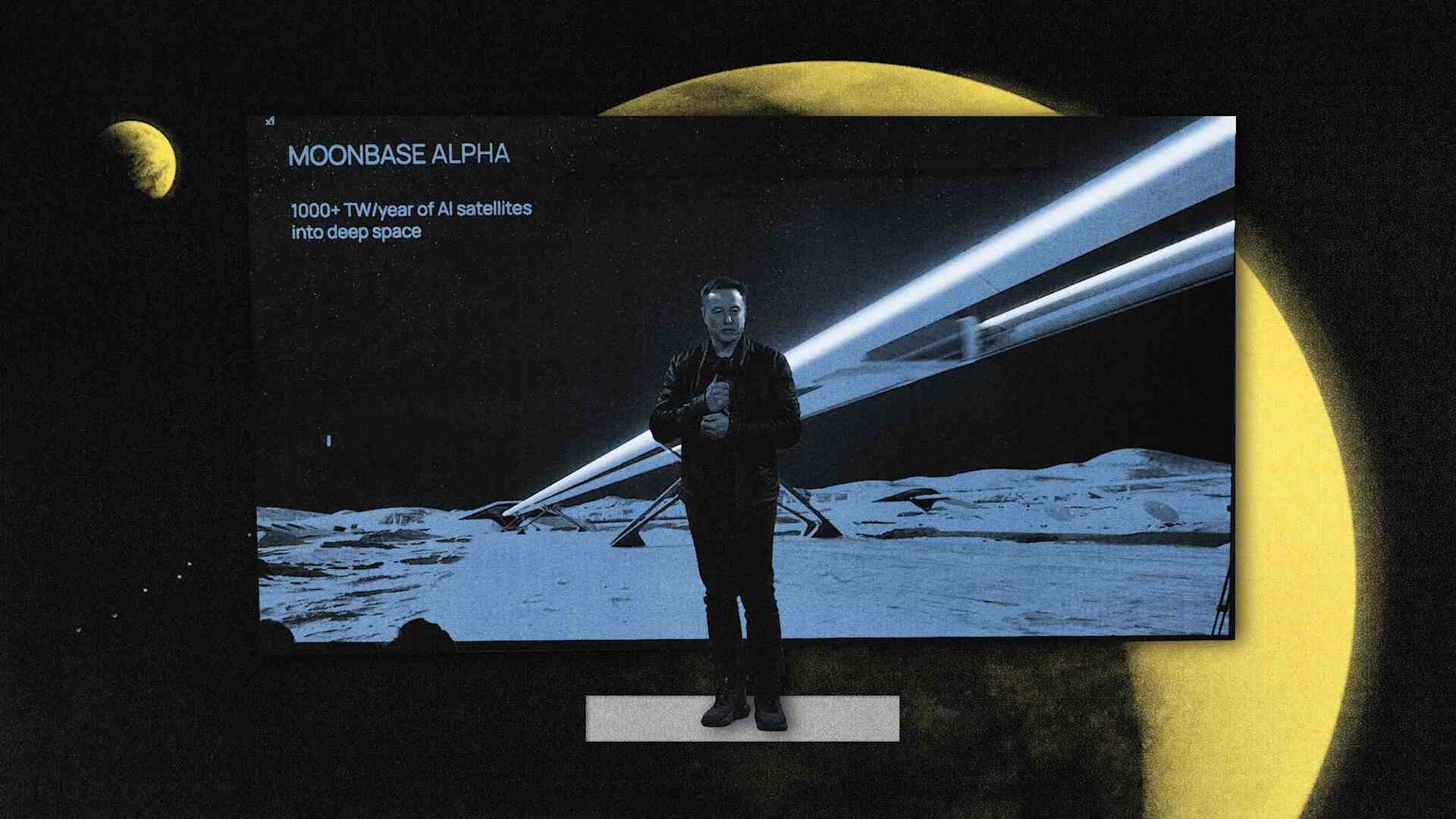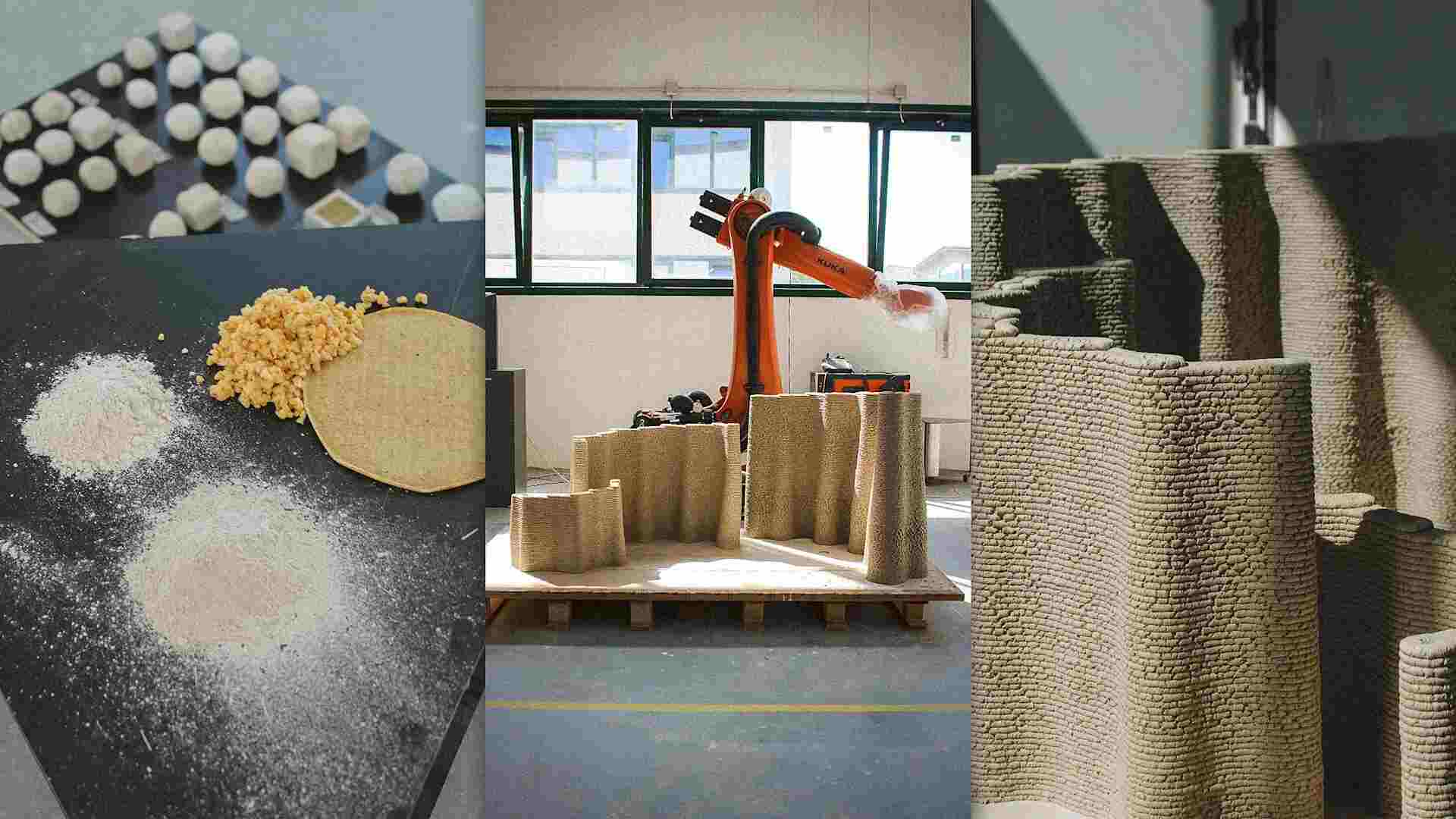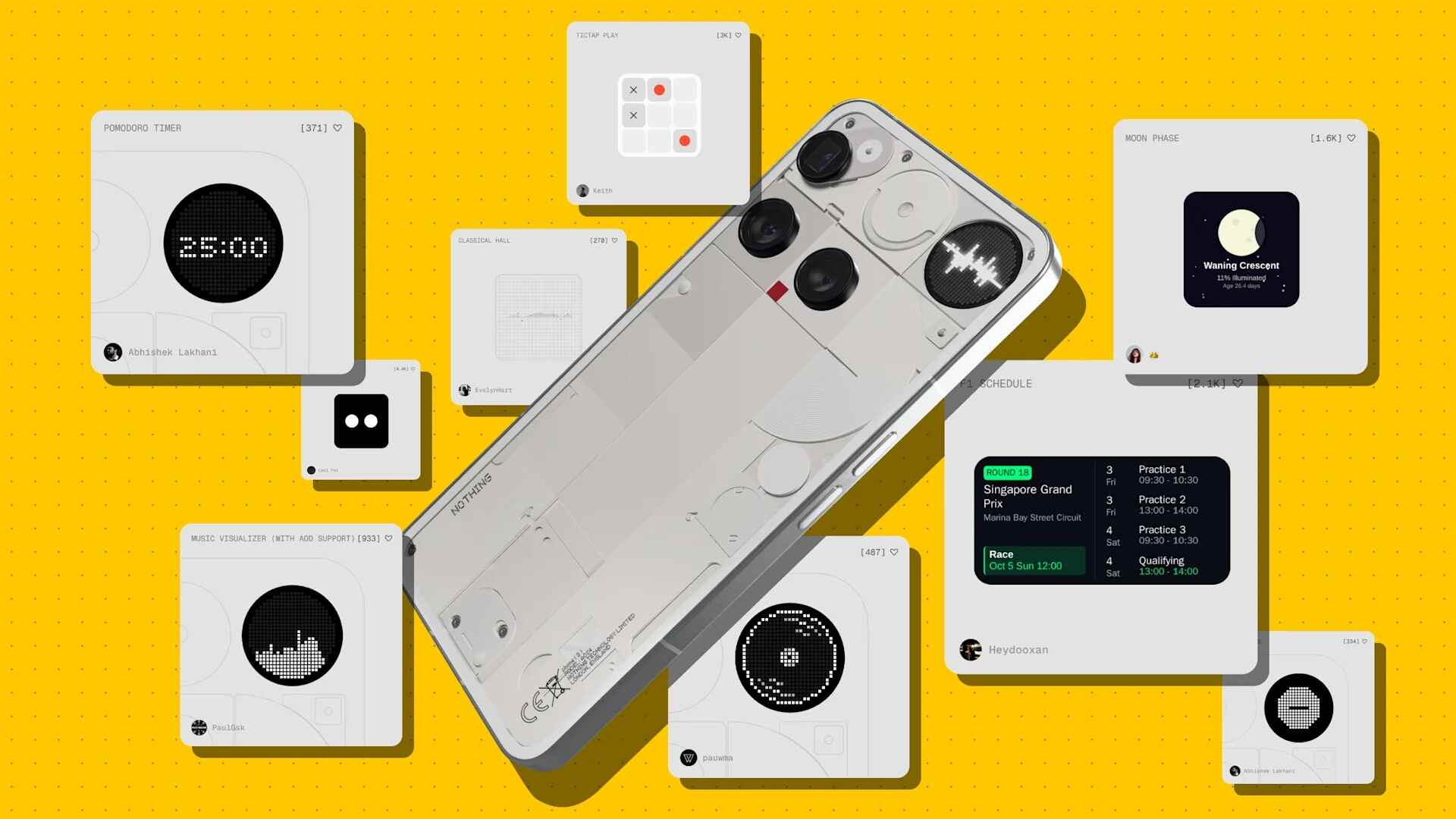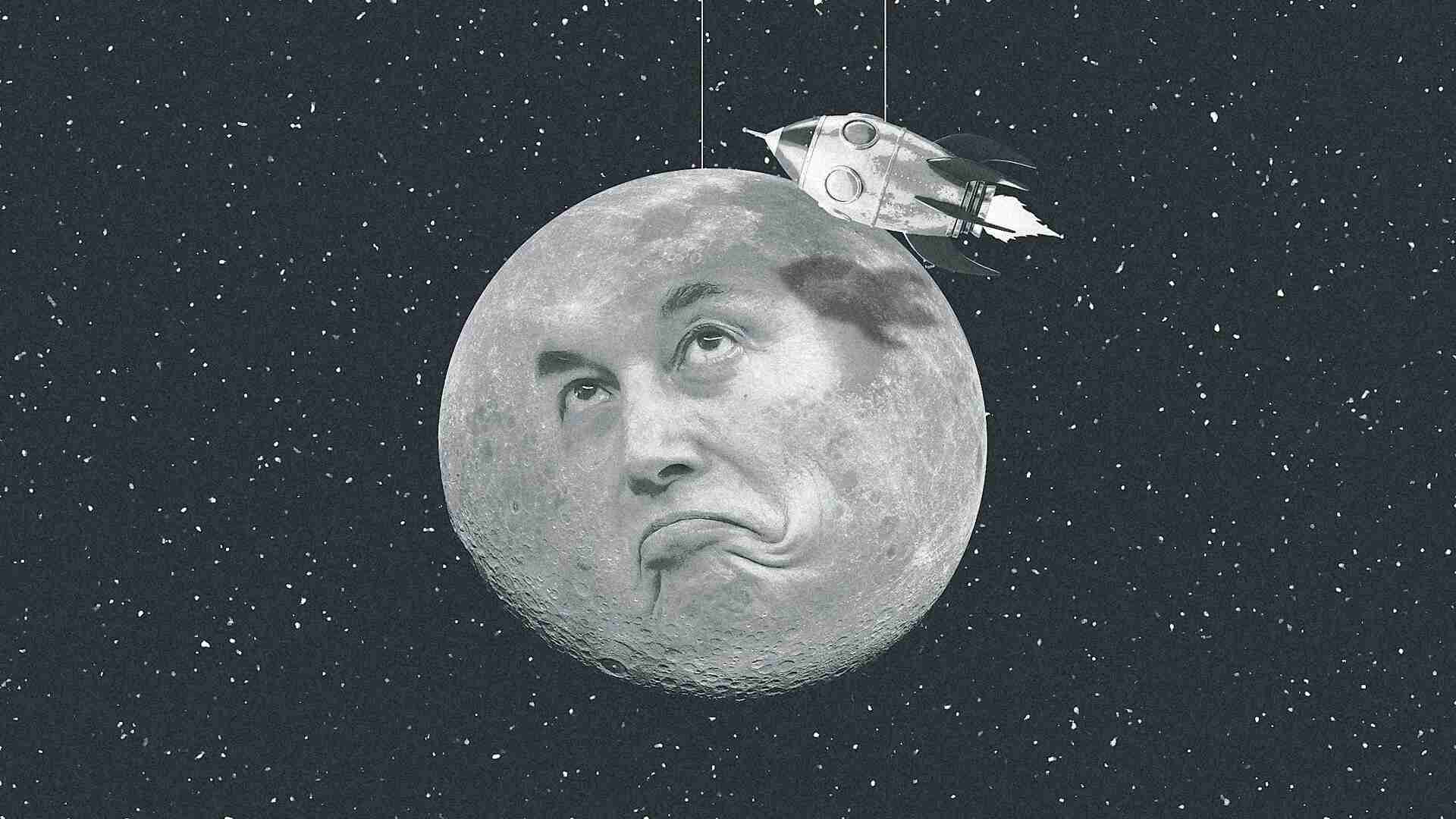- | 8:00 am
Ralph Lauren changed its iconic logo to woo the ‘Fortnite’ generation
Goodbye pony and hello llama. After 55 years, Ralph Lauren designed a new logo to woo new shoppers.
Since its inception, Ralph Lauren’s logo has been the same silhouette of a guy riding atop a purebred horse, mallet in hand, chasing a polo ball. The signature Polo Pony logo is a classic design for a buttoned-up brand, but soon, you’ll see a new incarnation of that logo for the first time ever. Specifically designed for a Fortnite collection, the new logo features the polo dude riding Fortnite’s iconic piñata llama. The redesign is part of a bigger partnership between the fashion brand and the gaming platform, which includes Lauren-designed in-game outfits and an IRL clothing line that complements, even replicates, the digital designs.
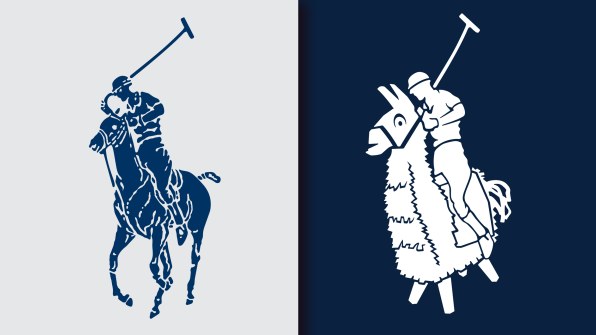
David Lauren, Ralph Lauren’s chief innovation officer and the founder’s son, couldn’t give me a definitive explanation as to why the company decided to change Ralph Lauren’s iconic logo. “We work with our hearts and our gut, and it felt right, and it felt fun,” he told me during a recent conversation. “We didn’t do any focus groups here.” Of course, there is a bit more to it than he’s letting on.
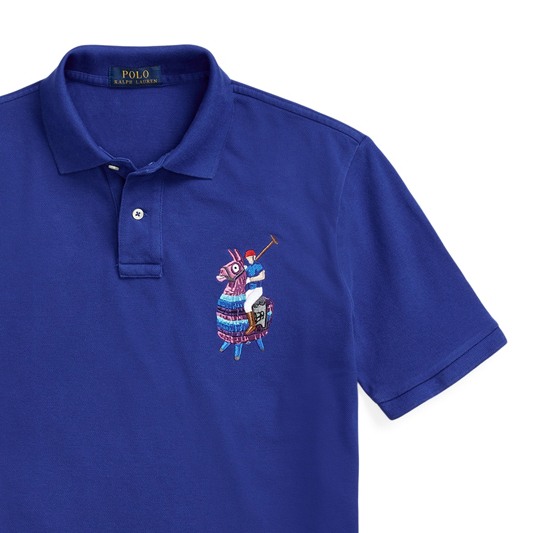
On its face, the move feels like Ralph Lauren’s version of turning its baseball cap backwards to play young. And, in many ways, that’s exactly what’s happening. Fashion brands including Balenciaga and Moncler have already dipped their toes into the Fortnite metaverse. While Burberry has partnerships with Roblox and Mythical Games. Fashion brands go where their customers are, and their customers are increasingly in virtual worlds. Ralph Lauren, for its part, isn’t totally new to the digital world, either. “We were one of the first brands to build a website, to play with video games and holograms in our own stores, and partner with other digital players like Bitmoji,” Lauren says. But there’s a reason for this madness beyond throwing cybernetic polo horse dung into the proverbial wall to see if it sticks.
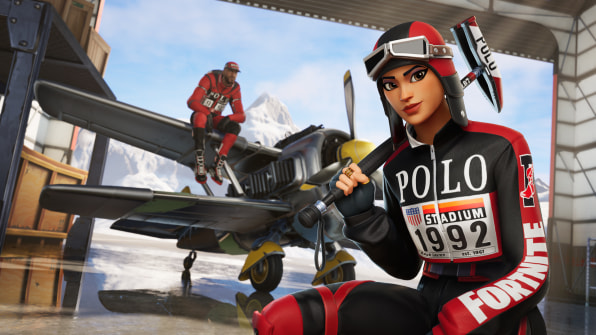
According to Lauren, the quest to try new technology is not so much about the tech itself. Fashion is about aspiration, and you can’t inspire aspiration without telling a compelling story. Technology is a tool to tell those stories, and the Fortnite venture is just the latest manifestation of what the brand says it has been doing all along.
Ralph Lauren founded the company in the late ’60s (and came up with the original logo) after watching the famous polo scene in The Thomas Crown Affair. “He loved the aspirational lifestyle,” Lauren says of his father. In the movie, Steve McQueen plays Thomas Crown, a man so rich that he organizes a bank heist just for the thrill of it. Crown lives in a fantastically elegant and posh New England universe, where everything seems like postcards from Martha’s Vineyard and Beacon Hill.
In the mind of the young Ralph Lauren, everyone wanted to be like those WASPs portrayed on the silver screen, so he created a brand to help people role-play that lifestyle. “My father never knew how to cut or sew or paste or stitch a product,” Lauren says. “He always had a dream of a movie, and he was creating clothes because they were almost like clothes that you would live in in his movie.”
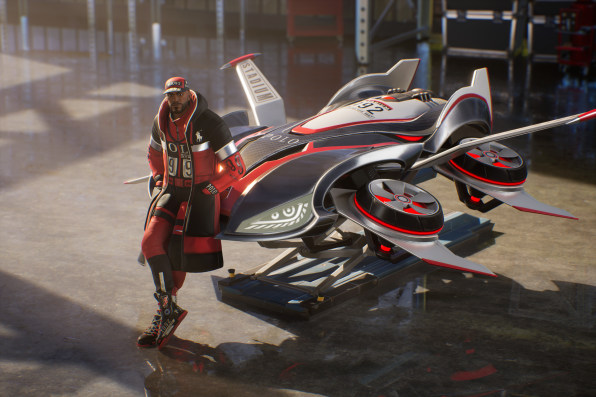
The Fortnite generation probably doesn’t give a damn about McQueen, New England, or polo. Among other things, they like to play games in metaverses like Fortnite which, according to Lauren, was chosen for the partnership because of how cool it felt to the company’s creative team: “It looked so modern and so exciting and so future-thinking that it really inspired us.” It seems that firing space guns in a highly stylized colorful metaverse felt like the new Thomas Crown Affair to the Ralph Lauren team. How the world turns, my friends.
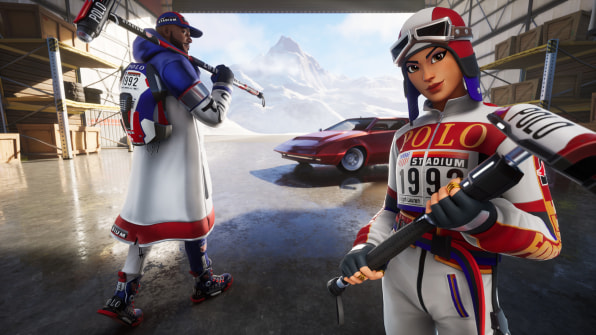
Lauren says that he believes that the metaverse can be a new medium to tell stories for the brand, just like film, TV, and magazines (print). Funnily enough, this is exactly the same thing Neal Stephenson—the sci-fi author who coined the term—told me a couple of weeks ago. Unlike Stephenson, however, Lauren’s idea of the metaverse includes goggles, at least for the time being. Lauren believes that virtual reality is here to stay: “There’s no doubt that everything we’re building today [referring to Meta’s Oculus] will be archaic in just a few years. But it’s not about judging them now. It’s just about embracing them so that we can build momentum as a culture to the next thing,” he says.
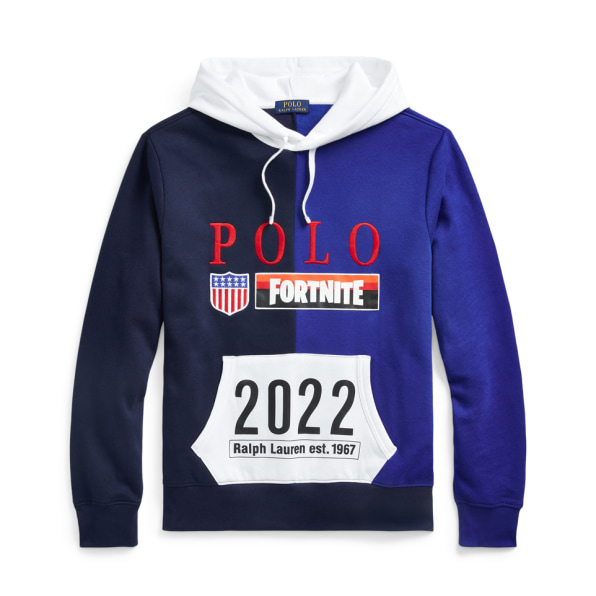
One thing that will remain constant, no matter the medium, is that a clothing brand has to sell stuff. And that’s ultimately the end goal for Ralph Lauren’s metaverse experiments. It’s planting a flag in a new territory, and speaking to a new generation through a logo that’s shakes off the stodginess of the physical world. If you want a virtual Ralph Lauren piece with a piñata llama polo player, the company will charge 1,500 VBUX (Fortnite’s digital currency) per outfit and 1,300 for an accessory bundle, with other accessories a la carte. In the real world, the company will be selling hats and polos with the new logo from $60 to $188.
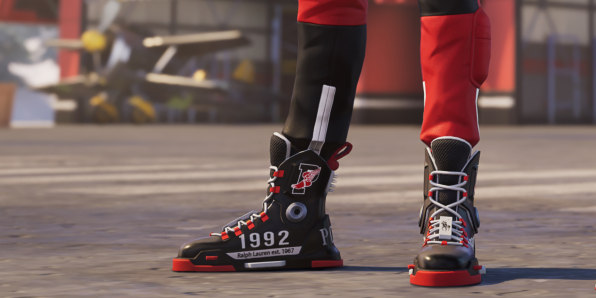
The pièce de résistance, though? A real boot that looks exactly like the boots your digital avatar can purchase inside Fortnite. In a clever real-world-meets-virtual-world move, the boots will be made from the same exact CAD files. And that, whether you like it or hate it, seems like a cool thing to have if you are an actual Fortnite head. Lauren couldn’t tell me how much the boots will cost, but by the looks of them, they’re not going to be cheap.













